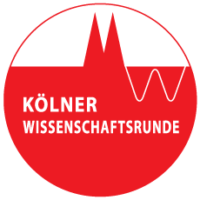May 20, 2022 | Urban Mobility Transformation: Future Visions
Today we are facing multiple challenges on how we are living and the way we use mobility. How can cities become more livable? How can urban spaces and urban mobility be designed to be sustainable and fit for the future?
The “Science meets City” symposium addresses the viewpoint of science within that area and is embedded in the polisMOBILITY trade fair in Cologne. The event focuses on modern urban infrastructure development, innovative mobility concepts and devices, as well as the collaboration between science, cities and citizens. Hamburg, Kyoto, Liege, Paris and Rotterdam serve as guiding examples focusing on the most pressing questions in urban mobility.
A mixture of impulses and personal discussions creates the ideal basis for new ideas, contacts and cooperations. Scientists and urban planners are cordially invited to participate in the international event.
Handout: Program
Impressions: YouTube-Video
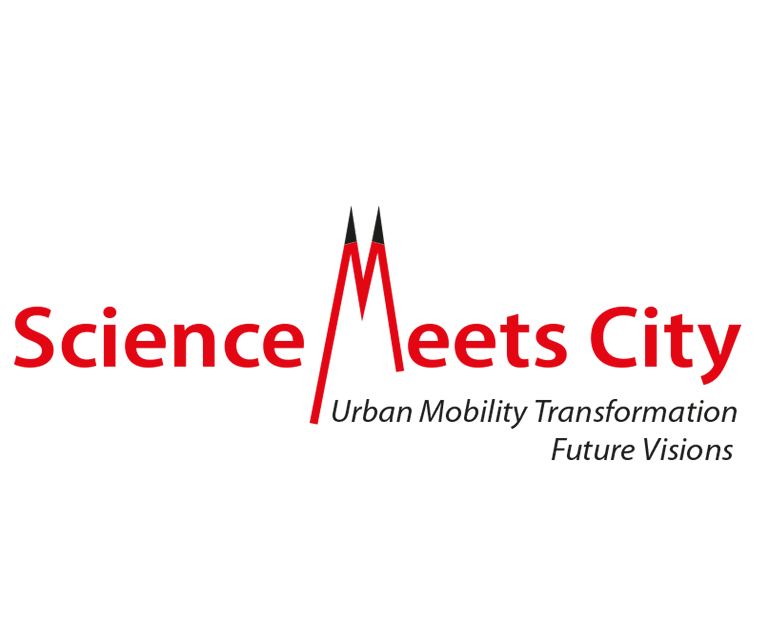
Topics & Speakers
12:00 PM | Reception
1:00 PM | Greetings
Recording: YouTube-Video
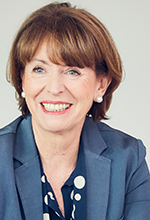
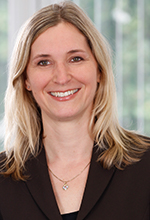
1:10 PM | Keynote
Recording: YouTube-Video
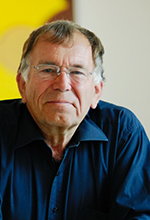
VITA: Jan Gehl is an Architect, Founding Partner of Gehl Architects, and Professor emeritus of Urban Design, The Royal Danish Academy of Fine Arts, School of Architecture. Over the course of his career, he has published several books, including, “Life Between Buildings”, “Cities for People”, “New City Spaces”, “Public Spaces – Public Life”, “New City Life” and most recently “How to Study Public Life”. As part of Gehl Architects, Jan Gehl has collaborated on projects for the cities of Copenhagen, London, Melbourne, Sydney, Amman, New York and Moscow, among others. He is an honorary fellow of the architectural institutes in Denmark, England, Scotland, Ireland, USA and Canada. He has been awarded the “Sir Patrick Abercrombie Prize for exemplary contributions to Town Planning” by The International Union of Architects as well as “The Key for the City of Sydney” and Honorary Doctor Degrees from Universities in Edinburgh, Varna, Halifax and Toronto.
1:30 PM | First Lead-Topic: Sustainable Mobility Planning and Public Transport Systems
(Chair: Prof. Dr. Michael Frantzen) Recording: YouTube Video First part | Second part
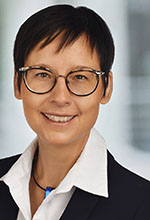
VITA: Meike Jipp is Professor for ”Transport Demand and Impact” at the Technical University of Berlin, Germany, and director of the Institute of Transport Research of the German Aerospace Center (DLR). In her research, she concentrates on human behavior in ground-based transportation systems: Why are humans mobile? How can one explain mode choice in transportation systems? Which impact does this mode choice has? How can one design transport systems that provoke climate-neutral and socially friendly mobility? Meike Jipp studied psychology at Mannheim University, Germany, and Carleton University, Ottawa, Canada. In 2008, she completed her PhD thesis at Mannheim University. After a two-year period as a postdoctoral researcher at Mannheim University, she became a researcher and project manager at the DLR-Institute of Flight Guidance in Braunschweig, Germany. In 2014, she became a group leader for driver cognition at the DLR-Institute of Transportation Systems. Between 2015 and 2020, she was head of the “Human Factors”-Department at the same institute. In 2019, she also became a full professor for Human Factors at the Technical University of Braunschweig. Early in 2021, she took over her current positions in Berlin.
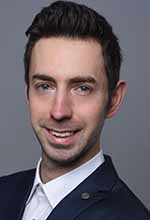
This is primarily due to the "special mode of operation" of the waste collection vehicles. The charging/fueling of the vehicles is carried out by regeneratively generated charging current from our waste incineration plants at the SRH depots and is thus climate neutral. A total of 120 charging stations are spread across nine operating sites in the city.
The future expansion of the required smart charging infrastructure at all SRH sites will be carried out under funding projects with other municipal companies and with funding that has already been successfully obtained.
(Orginal lecture by Prof. Siechau held by M. Sc. Fabian Schott)
VITA: M. Sc. Fabian Schott studied environmental engineering at the Hamburg University of Applied Sciences (HAW Hamburg) and at the University of Stuttgart. Since 2022 Mr. Fabian Schott works as an assistant to the CEO from Stadtreinigung Hamburg, Prof. Dr.-Ing. Rüdiger Siechau. Prof. Siechau worked for various companies in plant engineering sectors (e.g. UHDE, Thyssen). In 1995 Prof. Siechau joined Stadtreinigung Hamburg as managing director and has been appointed CEO in 2007. In addition, Prof. Siechau is supervising doctoral theses of young academics at TUHH where he was appointed as honorary professor in 2013.

VITA: Nicolas Hautière, Ing. PhD Habil., is Ingénieur en Chef des Ponts, des Eaux et des Forêts at the Université Gustave Eiffel. After ten years of research experience in computer vision applied to cooperative ITS, automated vehicles and opportunistic meteorological observation, his mission is now to initiate, develop and direct innovative research or innovation devices allowing the industrial transfer of solutions resulting from research in the field of renewed intelligence of mobility vectors and infrastructures likely to contribute to the achievement of the Sustainable Development Goals. In this context, he is in charge of the “Route 5e Génération (R5G)” Project on the one hand and, on the other hand, he acts as Director of the Components and Systems Department (COSYS).
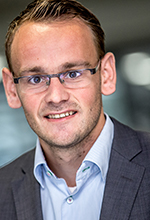
VITA: Prof. Dr. Pieter L. van den Berg is an associate professor of transportation and logistics at the Rotterdam School of Management, Erasmus University. He obtained his MSc in Econometrics and Operations Research from VU University Amsterdam and his PhD in Applied Mathematics from Delft University of Technology. His research focuses on the application of Operations Research to the logistics of public transport operators and emergency service providers.
2:30 PM | Round Tables
Open Exchange and Discussion on the Speaker Topics of the First Lead-Topic. Complementary roundtable discussions are offered. You can find more information about the extra topics in the Document.
3:00 PM | Coffee Break
3:30 PM | Second Lead-Topic: Urban Living, Planning and Building
(Chair: Prof. Dr. Claudia Bornemeyer) Recording: YouTube Video
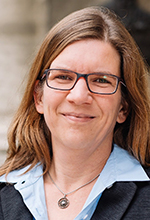
VITA: Kerstin Krellenberg is an Environmental Scientist and Geographer, and since 2020 Professor of Urban Studies at the Department of Geography and Regional Research at the University of Vienna. Her main interest is to contribute to a sustainable urban development by analysing the impacts of global change processes in cities and by elaborating integrative solutions for city-specific challenges in joint efforts with city administrations, the private sector, and civil society. Her interdisciplinary, transdisciplinary and transformative research approaches support to foster exchange and transfer of knowledge towards urban sustainability transformations.
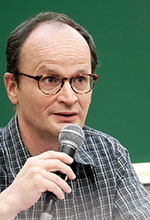
VITA: Jacques Teller is a professor of urban planning at the University of Liège, where he is leading the Local Environment Management and Analysis (LEMA) research group. He is a member of the Scientific Council of the Lab Research Environment (Vinci, Paritech) and of the Efficacity Research Institute in France. His research typically combines urban governance issues with the modelling of urbanisation and transportation dynamics. It addresses the impacts of urbanisation on energy consumption, heritage management, housing provision and transport demand. He coordinated several European research projects —SUIT (FP5), APPEAR (FP5) & PICTURE (FP6)— and was the Chairman of the COST Action C21 dedicated to Urban Ontologies. He has been in charge of an important research about the impact of territorial policies upon GreenHouse Gazes (GHG) emissions in the view of integrating this issue within the Spatial Development Perspective of the Walloon Region.
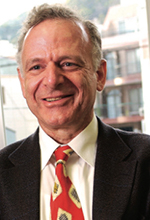
Mobility in Kyoto, like in many other Japanese cities, has gone through several transformations, currently centered on ICE vehicles, with the associated issues. We envision a linear motor mobility system that could fit into the narrow streets, and allow access by the increasingly elderly public to the cultural heritage on the surrounding hills.
VITA: Prof. Dr. Sandor Markon is managing director at Linearity Co. Ltd. and Professor at the Kobe Institute of Computer Science. He is a senior researcher at Fujitec Co. Lt. and works as a visiting scientist at the National Institute of Information and Communication Technology. He received his Ph.D. in Electrical Engineering from Kyoto University.
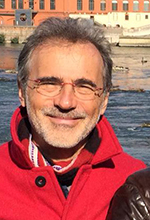
VITA: Jérôme Monnet, Professor at Université Gustave Eiffel, is the codirector of the Paris School of Urbanism (Ecole d’urbanisme de Paris, Marne-la vallée, Paris region, France). He holds a PhD in Geography from the University of Paris-4 Sorbonne. He used to live and work in Mexico City (French Center for Mexican and Central American Studies, CEMCA, 1988-1991 and 2001-2005), Los Angeles, California (Getty Research Institute, 1996-1997), and Toulouse (University of Toulouse-Le Mirail, 1992-2001). He was also an invited Professor in Geneva (Switzerland), Manizales (Colombia) and Nanjing (China).
His research focuses on the uses and social practices of public space in contemporary urban areas and conurbations, with fieldwork in Mexico City, Los Angeles and Paris. He develops a theoretical proposal on the social production of public space and the definition of territory, territoriality and territorialization. The most recent development of his studies deals with the surge of walking and pedestrian mobilities in urban policies, through action-research with local governments.
4:30 PM | Round Tables
Open Exchange and Discussion on the Speaker Topics of the Second Lead-Topic. Complementary roundtable discussions are offered. You can find more information about the extra topics in the Document.
5:00 PM | Closing Panel | Successful Implementation of Urban Transformation Processes
Recording: YouTube Video
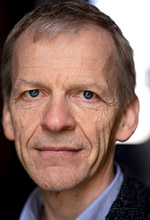

Tuija has more than 30 years of experience in leading, developing and evaluating higher education institutions and collaborating with the cities, firms and NGOs operating in the Helsinki-Uusimaa region, one of Europe’s most innovative and competitive innovation ecosystems. She is a founder and a former president of the European Network of Living Labs (ENoLL), a global institute developing citizen involvement and joint learning activities to enhance participatory Research and Innovation methods. Tuija received the Open Innovation Luminary Award from the EC Open Innovation Strategy and Policy Group (OISPG) that unites industrial groups, academia, governments, and private individuals to support policies for open innovation at the European Commission. Her work with the EC expert groups, such as the Open Science Policy Platform (OSPP), the Horizon Interim Evaluation expert group (SwafS/RRI), and the New ERA stakeholder movement, provided her with invaluable insight into why we need to strike a balance between the needs of science and the challenge-based innovation. Value co-creation, joint learning, and experimentation across scientific disciplines, industrial sectors, and organizational borders are at the very heart of Tuija’s current activities.


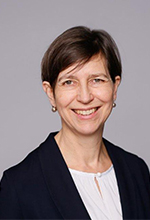
Brigitte Scholz has directed the Office for Urban Development and Statistics of the City of
Cologne since 2017. Her work focuses on strategic urban planning, the creation of
subspaces and sectoral concepts, integrated action plans, urban building promotion, and
regional cooperation. The Office of Statistics collects and updates basic data on
development in Cologne. Before working for the City of Cologne, Scholz was Project
Manager at IBA see (Brandenburg), and has overseen various projects in the city and region
as a professor in education and research.
Moderation | Carmen Hentschel
Event location
Cologne Trade Fair | Congress Centre East
Deutz-Mülheimer Straße 51
50679 Cologne
Contact
In case you have any questions, do not hesitate to contact us.
wissenschaftsrunde@koeln.de
Partners

KölnBusiness Wirtschaftsförderung
+49 221 99501-203
thomas.stiemer@koeln.business
https://koeln.business/de/

Kölner Wissenschaftsrunde
+49 221 8275 3187
wissenschaftsrunde@koeln.de
http://www.uni-koeln.de

City of Cologne
+49 221 99501-203
thomas.stiemer@koeln.business
https://koeln.business/de/
